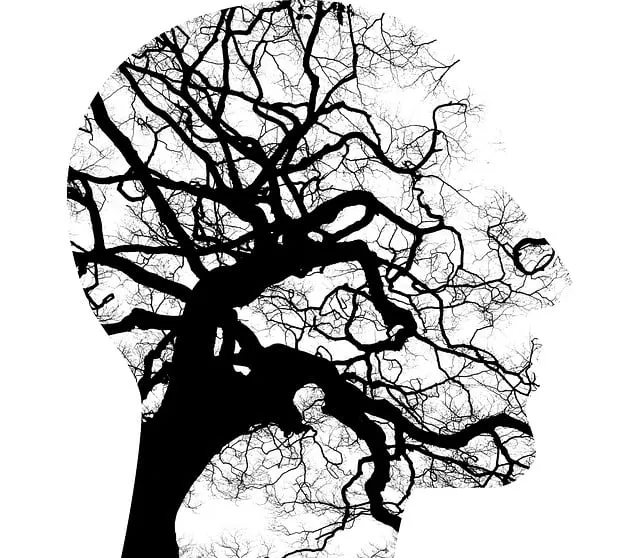Mental health professionals face challenges in accurately diagnosing patients due to complex symptoms and individual differences. Organizations like Kaiser Mental Health classes in Aurora are combating this through advanced training, education, and community engagement. They offer programs focusing on clinical expertise, new research, and specific disorder understanding to improve diagnostic skills. These initiatives reduce misdiagnoses, enhance patient outcomes, and break down barriers to mental health care by empowering individuals to recognize early signs and access support systems effectively. By integrating cultural competency, stress management workshops, stigma reduction efforts, and community involvement, Kaiser's approach ensures more accurate diagnoses and improved well-being for diverse communities.
Mental illness diagnosis accuracy is a critical issue, with misdiagnoses prevalent in the field of mental health. This article explores efforts to improve diagnostic precision, focusing on innovative strategies employed by organizations like Kaiser. We delve into their mental health education classes in Aurora, highlighting effective tools for healthcare professionals. Additionally, we examine the positive impact of community involvement through support groups and early intervention programs, ultimately emphasizing a multi-faceted approach to enhancing diagnosis accuracy.
- Understanding the Challenge: Uncovering Misdiagnoses in Mental Health
- Kaiser's Approach: Innovative Mental Health Education Classes in Aurora
- Enhancing Diagnosis Accuracy: Strategies and Tools for Healthcare Professionals
- Community Involvement: The Role of Support Groups and Early Intervention Programs
Understanding the Challenge: Uncovering Misdiagnoses in Mental Health

Mental health professionals face a complex challenge when it comes to accurate diagnosis. Misdiagnoses are prevalent in the field, often due to the intricate nature of mental illnesses and their overlapping symptoms. The human mind is a mysterious entity, and what may present as one disorder could be another, or even a combination of several conditions. This complexity is exacerbated by the fact that individuals experience unique manifestations of illness, making it difficult for doctors to pinpoint an exact diagnosis.
In efforts to enhance accuracy, organizations like Kaiser Mental Health classes in Aurora have been instrumental in providing advanced training and education. They offer programs designed to improve diagnostic skills, emphasizing the importance of comprehensive assessment techniques. These programs focus on various aspects, including enhancing clinical expertise, integrating new research findings, and promoting a deeper understanding of specific disorders. By participating in these educational initiatives, healthcare providers can better navigate the intricate landscape of mental health, potentially reducing misdiagnoses and improving patient outcomes through tailored treatment plans.
Kaiser's Approach: Innovative Mental Health Education Classes in Aurora

In an effort to enhance mental illness diagnosis accuracy and improve overall well-being, Kaiser has implemented innovative mental health education classes in Aurora. These classes focus on various aspects of mental health, including Self-Care Routine Development for Better Mental Health and Mood Management strategies. By providing accessible resources and knowledge, Kaiser aims to foster public awareness campaigns development and empower individuals to better understand and manage their own mental health. Through interactive workshops and engaging discussions, participants gain valuable insights into recognizing early signs of mental illness and accessing appropriate support systems.
The program’s unique approach leverages community engagement and education as powerful tools in the mental health landscape. By offering these classes in Aurora, Kaiser connects with local residents, breaking down barriers and promoting open conversations about mental well-being. This proactive initiative reflects a broader movement to revolutionize mental healthcare, ensuring that individuals have the necessary tools to navigate their emotional journeys with confidence and resilience.
Enhancing Diagnosis Accuracy: Strategies and Tools for Healthcare Professionals

Improving mental illness diagnosis accuracy is a multifaceted effort that involves enhancing tools and strategies for healthcare professionals. One notable approach is the integration of Kaiser mental health classes in Aurora, which provide specialized training tailored to the unique challenges faced by both providers and patients in diverse communities. These classes often include modules on cultural competency, ensuring healthcare providers are equipped to offer sensitive, culturally responsive care. By understanding the impact of cultural factors on mental health presentations, providers can make more precise diagnoses.
Furthermore, initiatives like Stress Management Workshops Organization (SMWO) play a crucial role in supporting mental illness diagnosis accuracy by empowering healthcare professionals with techniques to manage their own stress and burnout. Reduced provider stress levels translate into improved focus and decision-making, leading to more accurate assessments. Mental Illness Stigma Reduction Efforts also contribute significantly by fostering an environment where patients feel safe to openly discuss their symptoms, thereby facilitating earlier interventions and more reliable diagnoses.
Community Involvement: The Role of Support Groups and Early Intervention Programs

Community involvement plays a pivotal role in enhancing mental illness diagnosis accuracy and improving overall patient outcomes. Support groups, such as those offered by Kaiser Mental Health classes in Aurora, provide a safe and supportive environment where individuals with similar experiences can connect, share their stories, and learn from one another. These peer-led initiatives foster understanding, reduce stigma, and encourage early intervention—crucial steps in ensuring accurate diagnoses.
Early intervention programs, including Trauma Support Services and Mental Health Education Programs Design, are also instrumental. By educating communities about mental health and offering resources for those struggling, these initiatives promote proactive seeking of help. This, in turn, allows for timely assessments and more accurate diagnoses, especially when coupled with the advocacy and policy analysis conducted under Mental Health Policy Analysis and Advocacy.
Mental illness diagnosis accuracy has long been a complex issue, but with concerted efforts like Kaiser’s innovative mental health education classes in Aurora, significant strides are being made. By combining advanced strategies and tools for healthcare professionals with community involvement through support groups and early intervention programs, we can improve patient outcomes and ensure those seeking help receive the accurate diagnoses and effective treatments they deserve. These collaborative approaches hold promise for enhancing mental health care on a global scale, making it more accessible, precise, and ultimately, life-saving.






